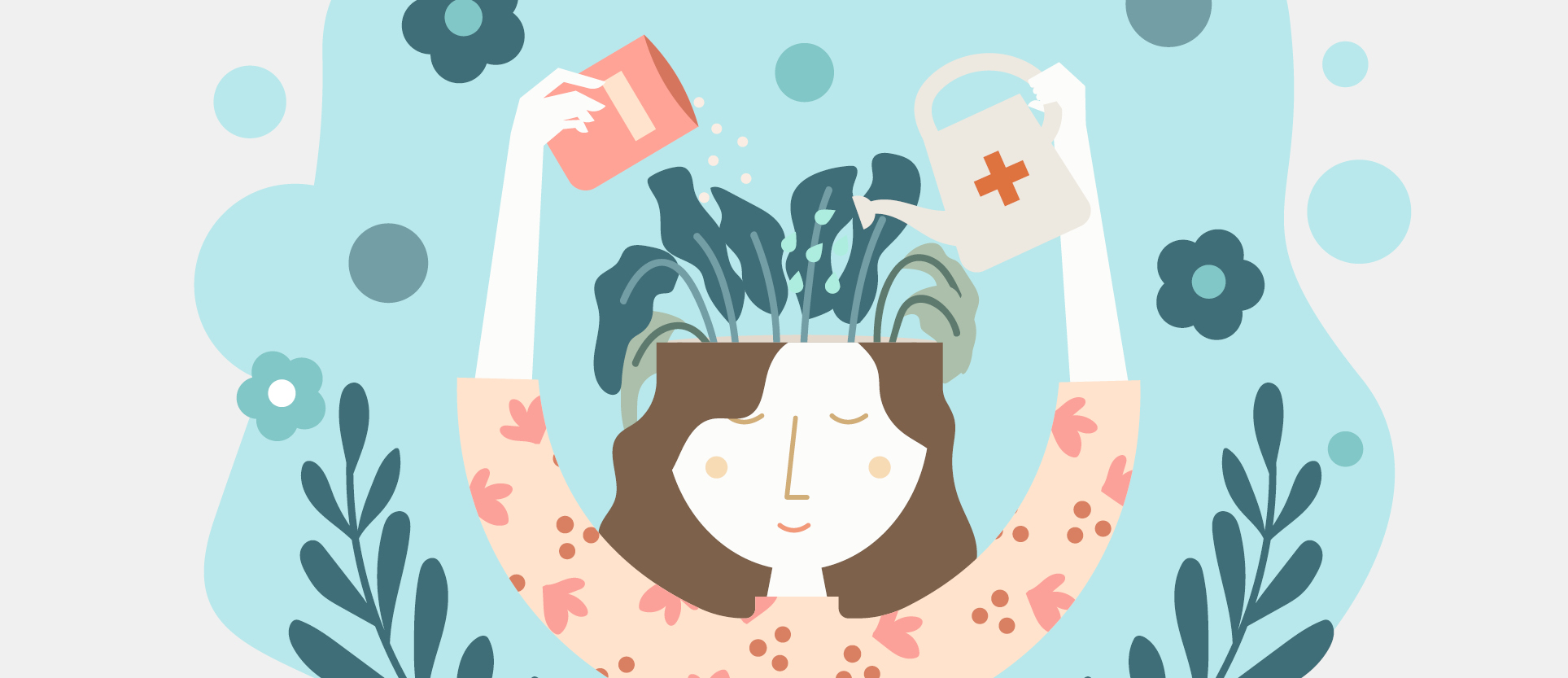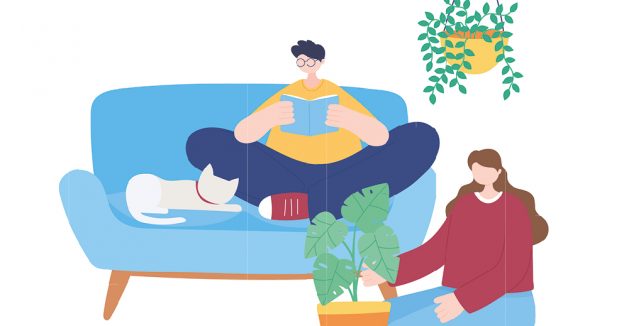Now more than ever, it’s really important to take the time to look after your emotional and mental wellbeing.
Many of us are facing more social and economic pressures. You may be feeling the pressures of working or studying whilst trying to maintain a positive balance at home. There may be anxieties over COVID-19, or concerns over vulnerable loved ones during this time. Some of us may be faced with uncertainty over finances and changes in the economy and future job security.
With this in mind, we urge our students, along with our wider community, to make time for self-care and research self care ideas that may work for them. Healthy living isn’t just about what you eat for dinner or how often you’re in the gym. It’s about taking time out to focus on yourself to boost your emotional and mental wellbeing.
This self-care week, take a look at these ten simple self care ideas that you can use to boost your wellbeing, which don’t take up a lot of time and can slot into busy routines more easily:
-
Watch the sunrise or sunset
Any time you can make in your life to pause and simply breathe is a good way to boost mental wellbeing. Making a point to watch the day begin and end each day is a perfect way to slow down. What’s more – you can enjoy the sunlight at its most colourful! (Don’t take any pictures or post about it on social media, just watch!)
-
Take a leisurely walk
A short walk around the block or your local park in the fresh air can help clear your mind of worries or distractions, and just focus on the ‘here and now’ for a while. Remember to follow the latest guidance from the government in regards to social distancing.
-
Listen to a feel-good playlist or podcast
Wind down from a busy day by listening to your favourite songs, or a short podcast on a topic that interests you.
-
Read a book
When was the last time you read a good book? If you can’t remember, you’re not alone – many people struggle to find the time to read. However, sitting down with a book even for just five minutes can help to reduce stress and keep your mind stimulated. If you’re looking to revitalise a love of reading, why not take a look at Amazon’s 100 Books to Read in a Lifetime?
-
Declutter your house or wardrobe
Taking the time to clean up a cluttered area that has been bothering you for a while, or give away clothes you don’t really need, can help you feel more organised. As they say, a tidy home equals a tidy mind!
-
Write a journal entry
Writing can be a fun past time to inspire creativity and help you to organise your thoughts to boost self-reflection. You could write about your feelings, experiences and thoughts about your day; or pick from one of the thousands of diary prompts available online.
-
Try meditation
Meditation is a simple method to focus on the present moment. The mental health benefits of meditation include better focus and concentration, improved self-awareness and self-esteem, lower levels of stress and anxiety, and fostering kindness.
-
Take a day away from social media and the news
Between the news and social media, we’re all feeling saturated by coronavirus updates right now. It’s important to stay informed, but too much exposure can increase feelings of fear and anxiety. Try to limit your media intake to a couple of times a day and use trusted news sources. If you catch yourself turning to social media because you’re feeling isolated, take a break and spend time on another activity.
-
Learn something new
Have you ever wanted to get into drawing or learning a musical instrument? Now’s a great time to make a start and there are free resources available for all kinds of hobbies. YouTube has great free online tutorials for pretty much everything. We also offer a range of online, distance learning programmes.
-
Call a friend or family member
We’re all doing our best to adapt to a new way of living, so now more than ever we need to check in with others. There’s a lot of comfort to be found in simply having a catch up with a loved one.
If it’s all getting a bit much…
Sometimes things can get overwhelming, even if you’ve been practising self-care. If it’s available to you, you should consider seeing your GP or mental health professional for extra help. You could also ask your mental health professional if they could chat over Skype/FaceTime if you’re in self-isolation.
Further mental health support at The College of Animal Welfare
 If you’re a student or staff member with us, and you’re struggling with your mental wellbeing, please don’t hesitate to reach out to your teacher, head of course or line manager – they are there to help and support you. We also offer lots of additional mental health support that you can access free of charge:
If you’re a student or staff member with us, and you’re struggling with your mental wellbeing, please don’t hesitate to reach out to your teacher, head of course or line manager – they are there to help and support you. We also offer lots of additional mental health support that you can access free of charge:
Togetherall
All staff and students can now access free online mental health and wellbeing support through Togetherall (previously called Big White Wall). This service can be used at any time of the day or night, all year round.
Whether you’re suffering from stress, problems with sleep, feeling low or unable to cope, or simply need someone to talk to, Togetherall can help you get support and learn useful coping strategies to improve mental health and wellbeing. The service enables members to get things off their chest in a safe, anonymous global community. You can access a library of self-care resources and trained professionals are online 24/7 to keep all members safe and provide extra support.
The college will not be informed of those who are signed up to Togetherall or activity on the service unless they are seriously concerned about safety whilst on campus. To join, go to the Togetherall website and sign up under ‘I’m from a university or college’ using a staff or student e-mail address.
College counselling services
In addition to this, we offer a confidential counselling services, with free sessions for students on an ongoing basis (the college is not made aware of any appointments made). The College counsellors are still available via phone, email or video conference:
Jill Dighton | Tel: 07925 852 985 | Email: jill@jdighton.co.uk
Mark Walsh | Tel: 07905 611 591 | Email: mwalsh4@sky.com
Mental health resources
- Mental Health Foundation – Looking after your mental health during the Coronavirus outbreak
- Mind – Coronavirus and your wellbeing
- Mental Health England – Supporting your mental health while working from home
- Samaritans – If you’re worried about your mental health during the coronavirus outbreak
- Vetlife– Mental health support and financial assistance for the veterinary community including veterinary nurses and students
- Living Wellarea on CAW VLE

